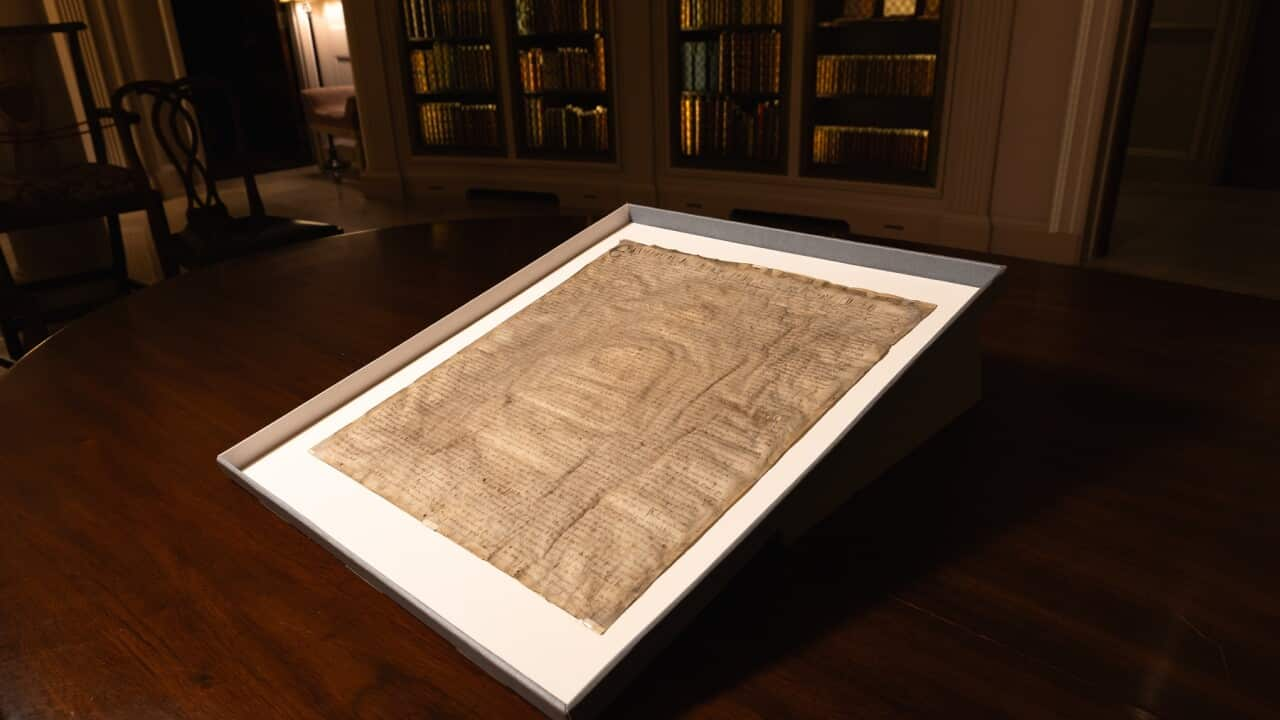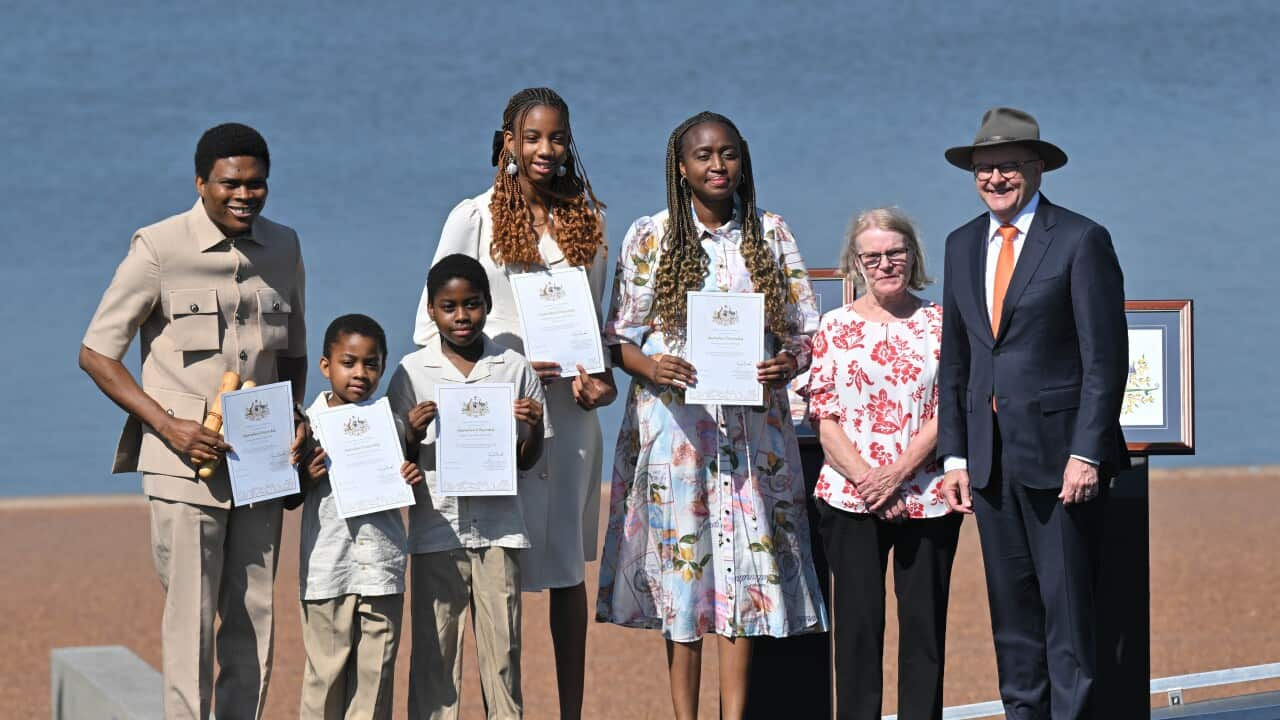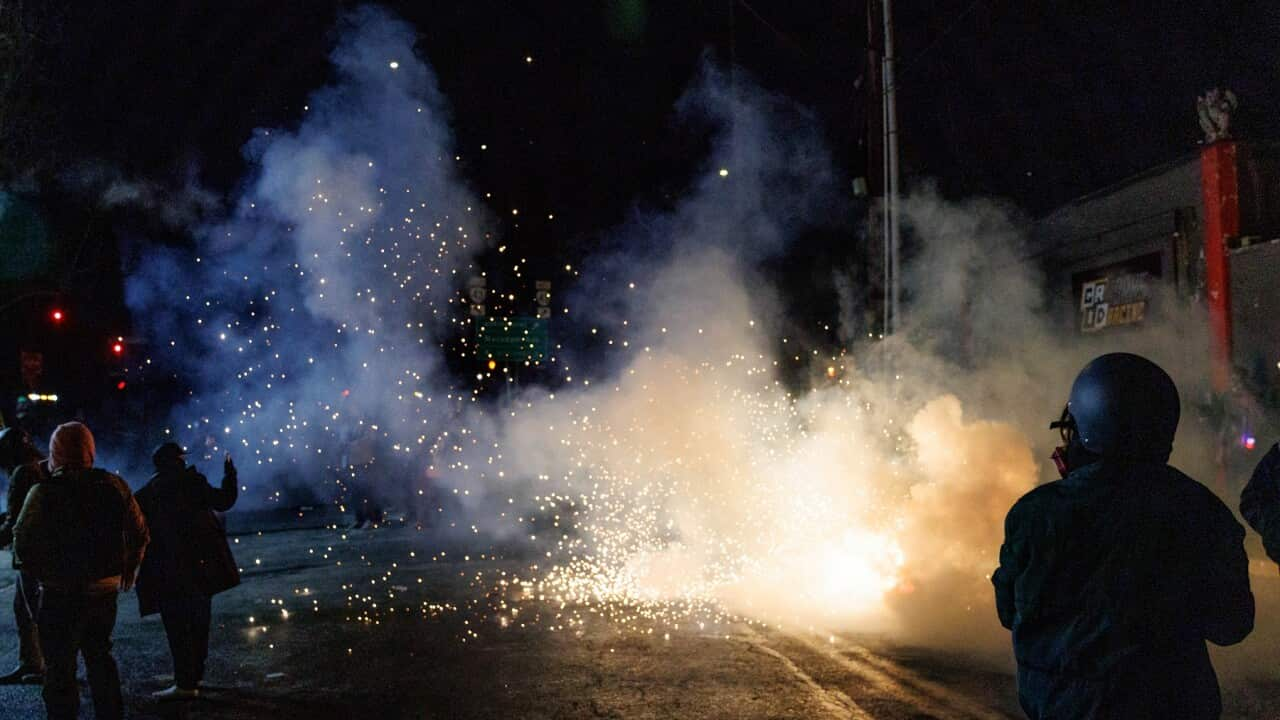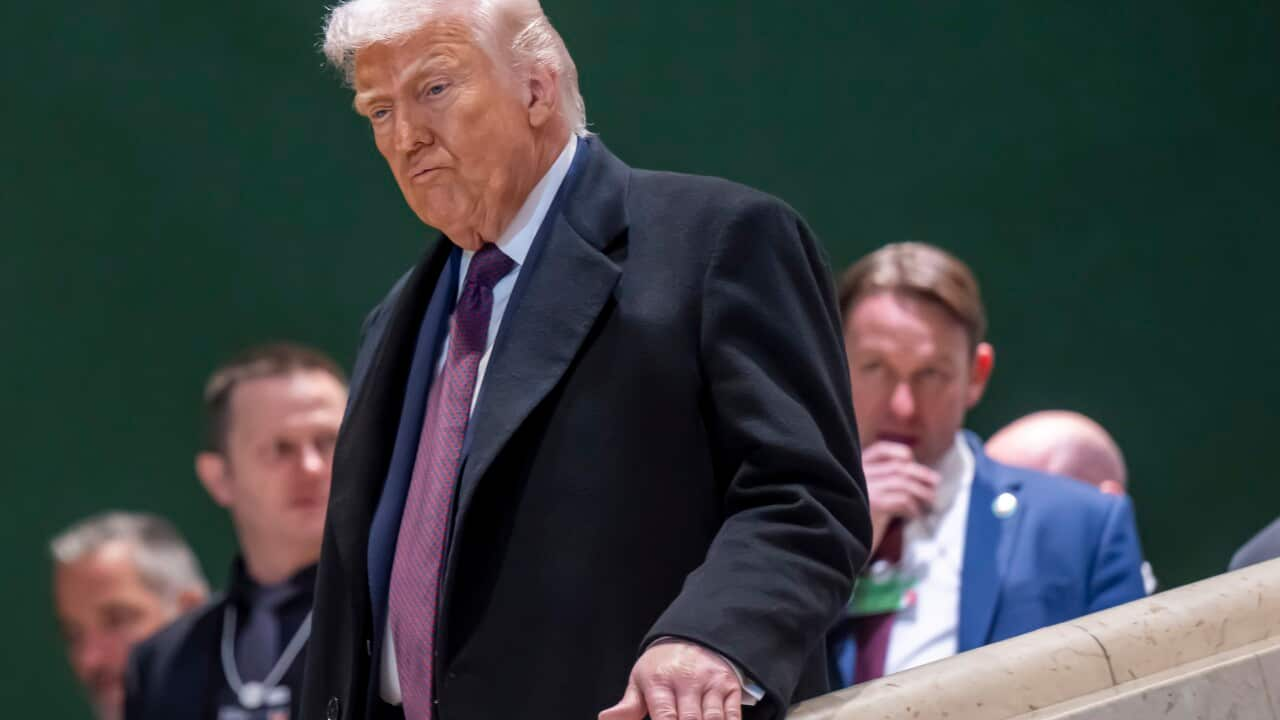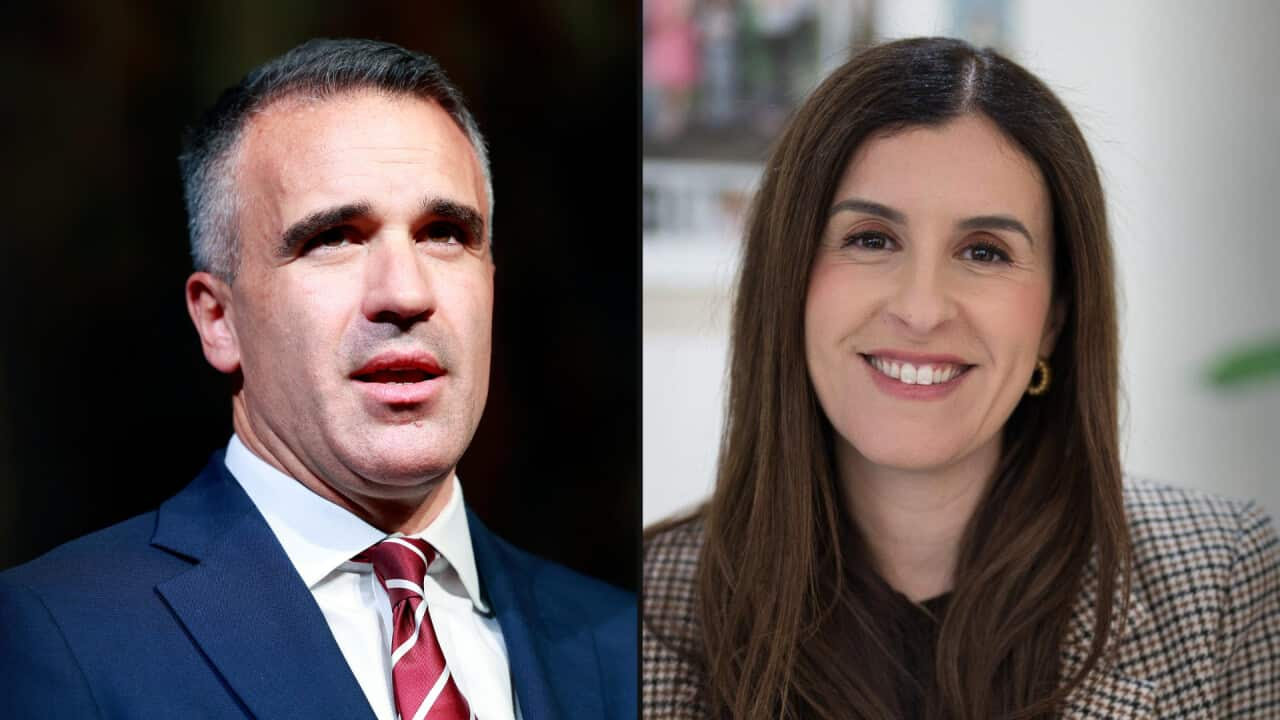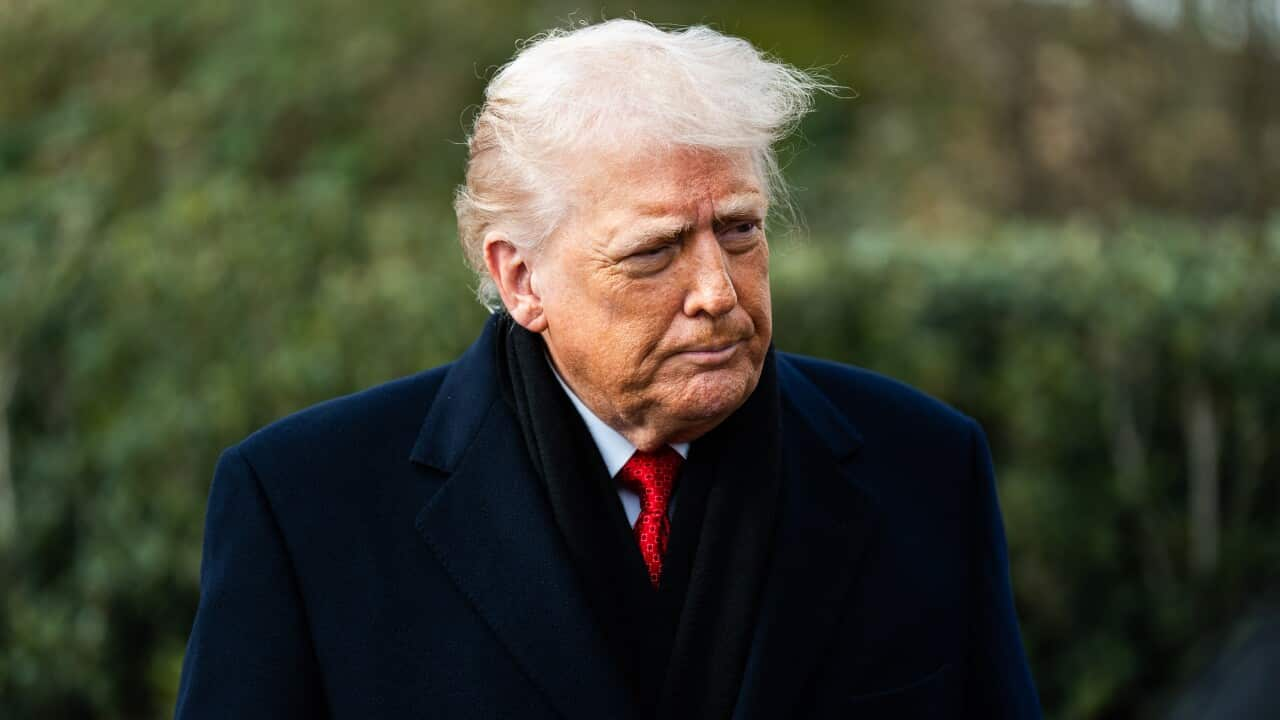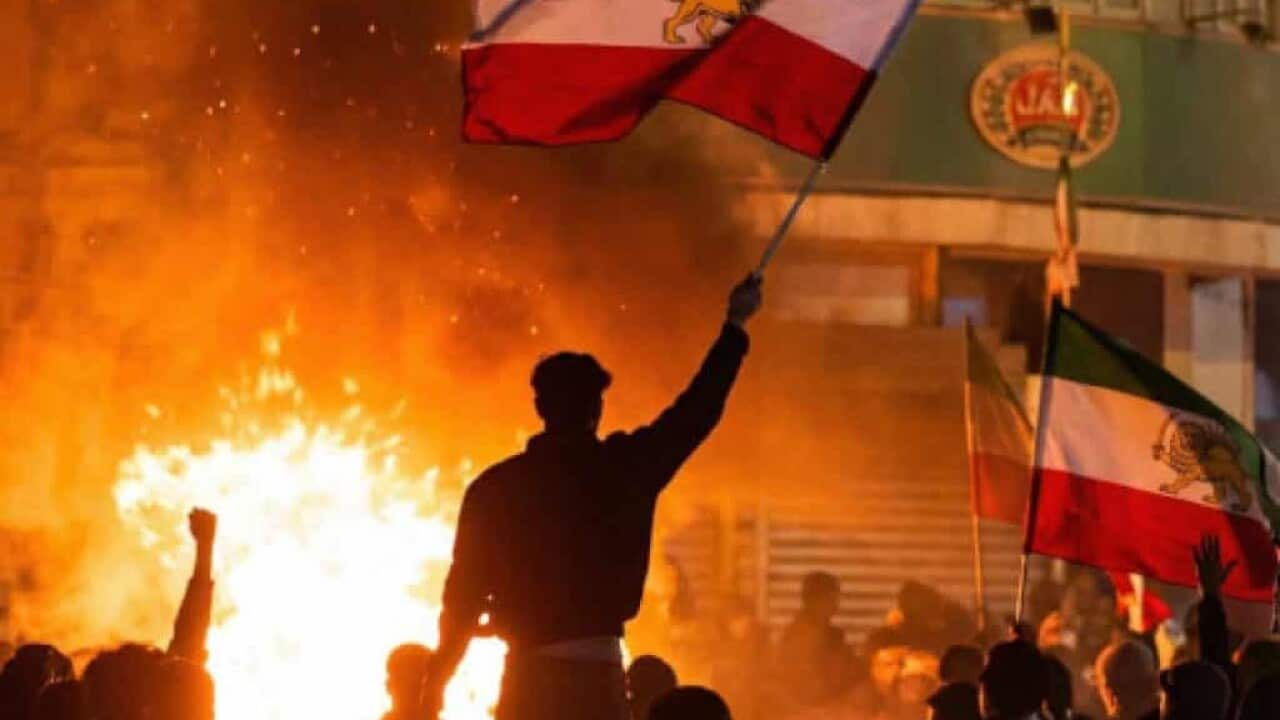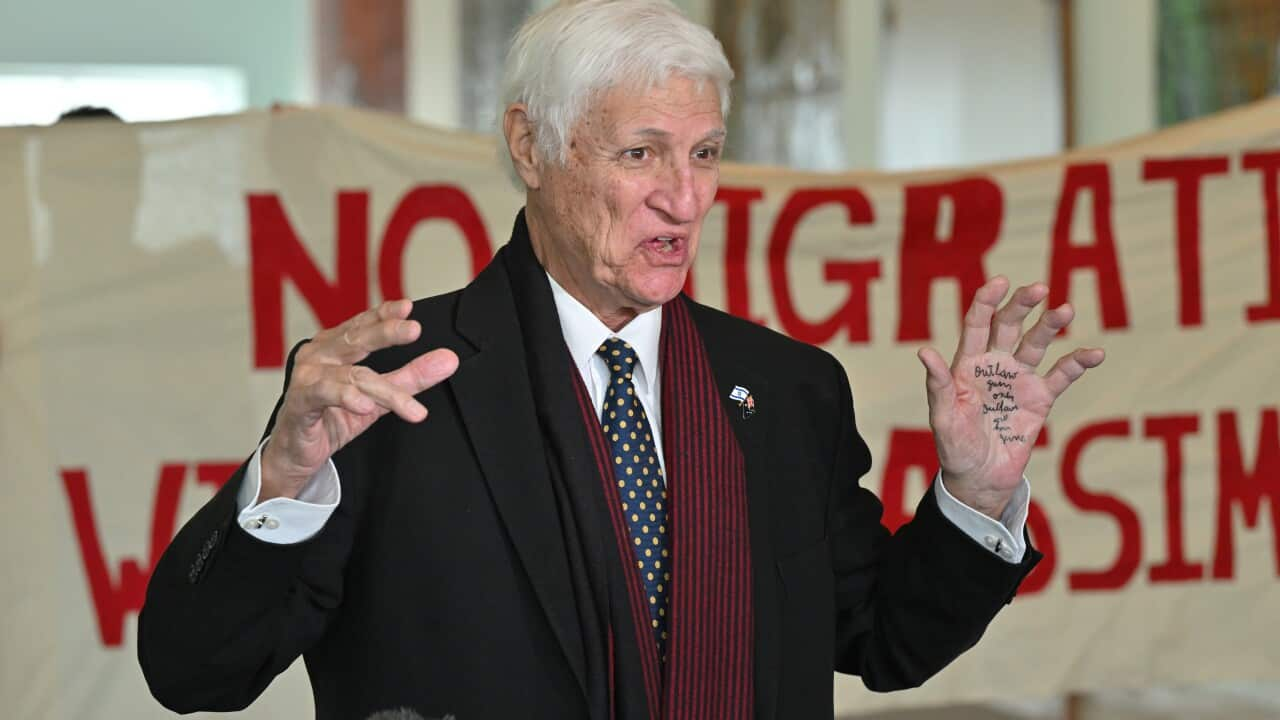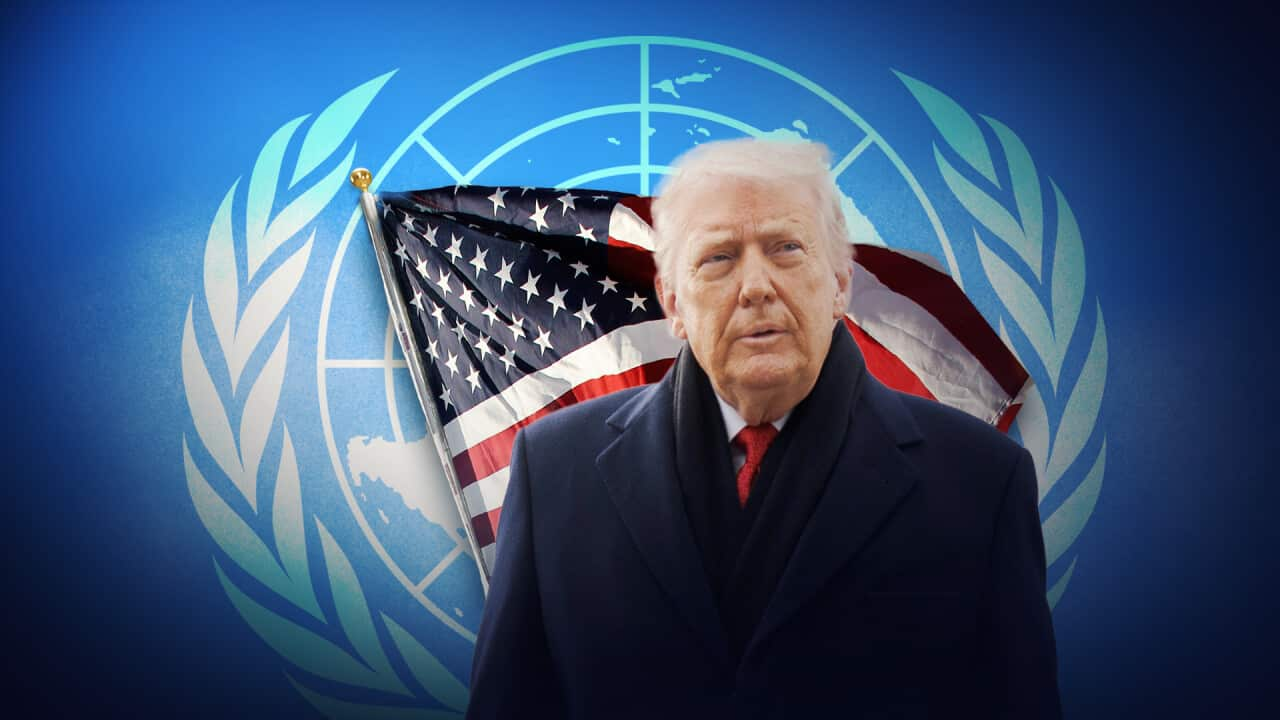Listen to Australian and world news, and follow trending topics with SBS News Podcasts.
TRANSCRIPT
In recent times, Harvard University has been hitting the headlines over its stoush with US President Donald Trump.
The Trump administration has frozen future grants to the university, and demanded that Harvard address pro-Palestine demonstrations on campus, school policies which consider a student's race, and the employment of relatively few conservative faculty members.
Mr Trump has made his disdain clear in interviews with White House press reporters.
"I think Harvard's a disgrace. I think what they did was a disgrace. They're obviously antisemitic."
Now, the oldest university in the US has made news for another reason - the copy of the Magna Carta held by its law school has been found to be an original.
Medieval history professor David Carpenter from Kings College London made the astonishing discovery online.
"I go to the Harvard Law School website and I trawl through one book after another... And then I come to Harvard Law School 172. So I click on that and lo and behold what is there is not a book at all... I immediately thought, ‘Oh my god, this is an original of Edward I's 1300 confirmation of Magna Carta.”
Nicholas Vincent is also a professor of medieval history at the University of East Anglia.
David Carpenter teamed up with him to confirm this document was exactly what he believed it to be.
"There are many, many, hundreds, probably thousands of copies of Magna Carta, but originals, no, there are very few of them."
Until now, there were only six originals from 1300 — and none in the United States.
Mr Carpenter says Harvard Law School bought the document decades ago for what was then 25 US dollars, believing it to be a copy.
"They bought it for peanuts in 1946 from an auctioneer, Sweet and Maxwell, who equally seemed to have no idea what it was. So, this was just amazing."
Professor Vincent says the assumption that the document was a copy is down to human error.
"Whoever catalogued it got their kings mixed up, and they thought that it was something to do with Edward II rather than Edward I. And as a result, they assumed it was a copy."
The reason for the excitement is because of what the document represents.
The original was issued in the year 1300 by King Edward the first of England, and established the principle that the king was subject to the laws of the land.
Professor Carpenter says the Magna Carta went on to influence the development of constitutions around the world, including the US.
"Magna Carta has been very important in American history... It was cited by the makers of the American Constitution, both federal and state. It's frequently cited still in the Supreme Court judgements.”
Both Vincent and Carpenter plan to visit Harvard in June to see its Magna Carta first hand.
Professor Vincent says the timing is not lost on either of them.
"This is a document that defends the liberties of the individual against what’s seen as a tyrannical sovereign power. It turns up at Harvard at precisely the moment where Harvard is under attack as a private institution by a state authority that seems to want to tell Harvard what to do. So all of this is really quite an extraordinary series of connections and a rather marvellous provenance.”
